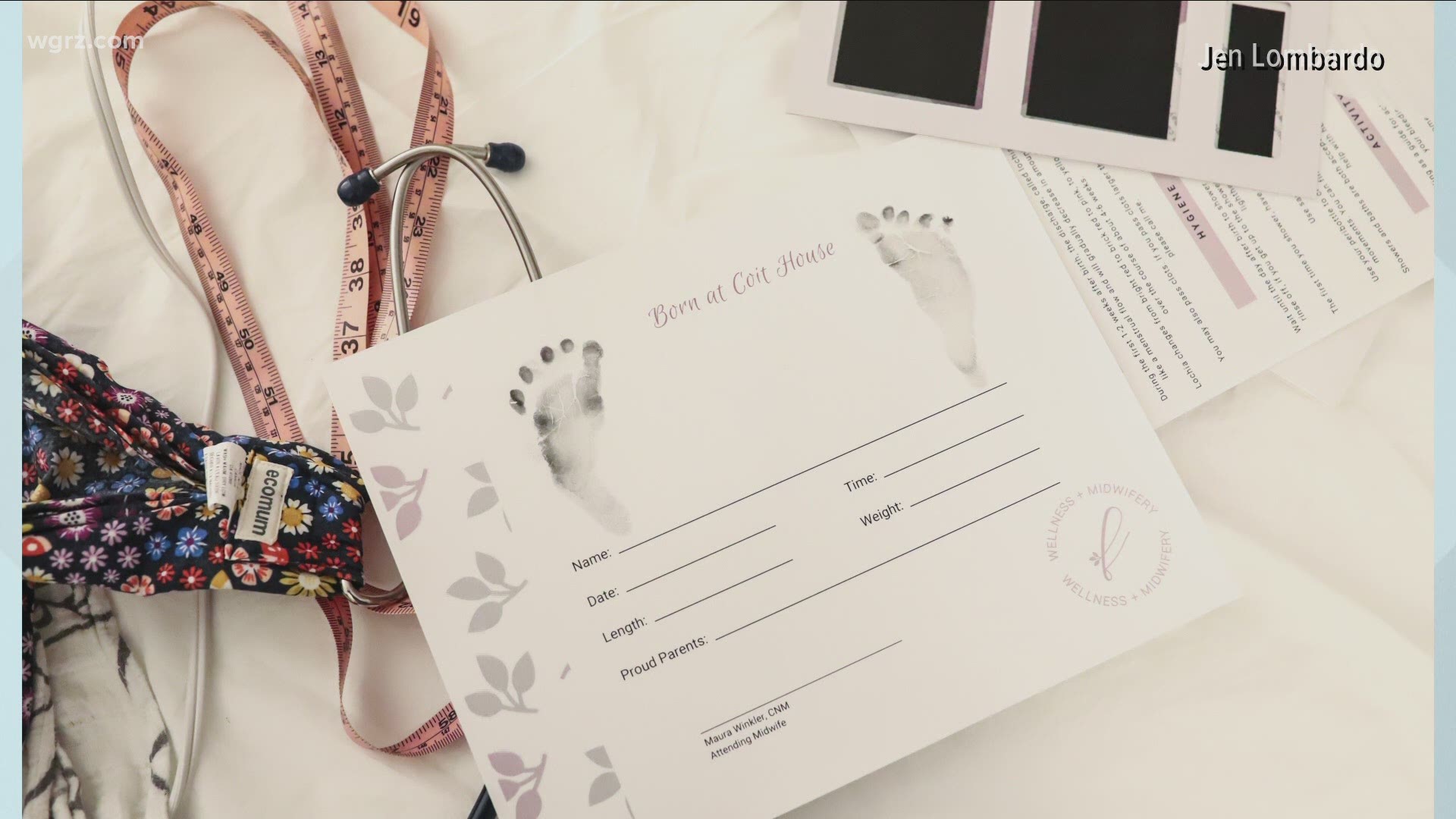BUFFALO, N.Y. — Ever since the start of the pandemic, more and more expecting parents are becoming interested in having their babies out a hospital, either at home or a birthing center under the care of a midwife. That's why New York State recently eased the restrictions on licensing for birth centers, which used to have to be owned by a physician, or located inside a hospital.
A Buffalo-based midwife practice was the first facility of its kind in the state to apply for one of these new licenses. 2 On Your Side spoke with two mothers who recently gave birth there, and the founder.
Penelope Kirchberger was born in July, in a pool inside the Coit House in Buffalo. The historic home has been occupied by Fika Midwifery since 2018.
"I've had multiple people tell me like, 'do you think that her calm nature is because she came into the world so calmly?'," her mother, Natalie, told 2 On Your Side. "And I'm like, you never know."
Natalie is a nurse herself. She and her husband, Dan, did a lot of research about where she would deliver before she ever even became pregnant, and before Covid-19 raised a lot of questions about what it would be like to have a baby in a hospital.
"There were all the things happening in New York City where they weren't letting even laboring partners in," Natalie remembered. "It made us even happier with our decision."
Penelope will be one of more than 130 babies born at Fika this year.
"The kind of midwifery that we do is very focused on physiological birth, kind of honoring pregnancy and childbirth the way that evolution and nature designed it to happen," Fika Founder and Midwife Maura Winkler said.
"In New York State midwifes are licensed, we can prescribe medications. Sometimes people will think midwives don't have a medical background but we do," she continued. "So, we intervene when we need to, but mostly we are very experienced in how childbirth is meant to unfold.
Now, Fika has applied to become the first facility of its kind to earn a birthing center license from New York State, too. The distinction would give them added credibility and open doors for more insurance companies to cover the cost of a birth there.
Maura Winkler says this would address an immediate need in the community. Her practice was growing every year even before the pandemic brought more inquiries.
"Initially, we did see an increase in inquiries," Winkler said. "Some of them were not the right people. Out of hospital birth isn't for everyone."
Mothers interested in out-of-hospital births must be healthy and low-risk.
"One of the contributing factors to the amazing statistics we have of course is that we take care of healthy, low-risk people," Winkler explained. "We don't take care of people that have high blood pressure, diabetes, other high risk health conditions. So some of the people who called were people who weren't really quite the right fit for birth outside the hospital."
But the pandemic helped the practice book their remaining available slots for the year.
"We didn't have a lot of spots left in the summer before Covid started, so it took no time at all to kind of fill in the few spots we have left," Winkler said.
Another client, Dominique Anderson, and her partner decided to transfer from a hospital birth plan to a home birth experience at Fika, late in her pregnancy.
"My main concern was the germs and like I said, so many people being surrounded around her," Anderson told 2 On Your Side. "It was just more comfortable in an intimate setting."
Her second daughter, Janaiya, was born September 30th. She gave birth to her older daughter in a hospital two years ago.
"The water birth was definitely more peaceful and relaxing," Anderson said. "I would definitely take that route again if I decide to have more children."
>


